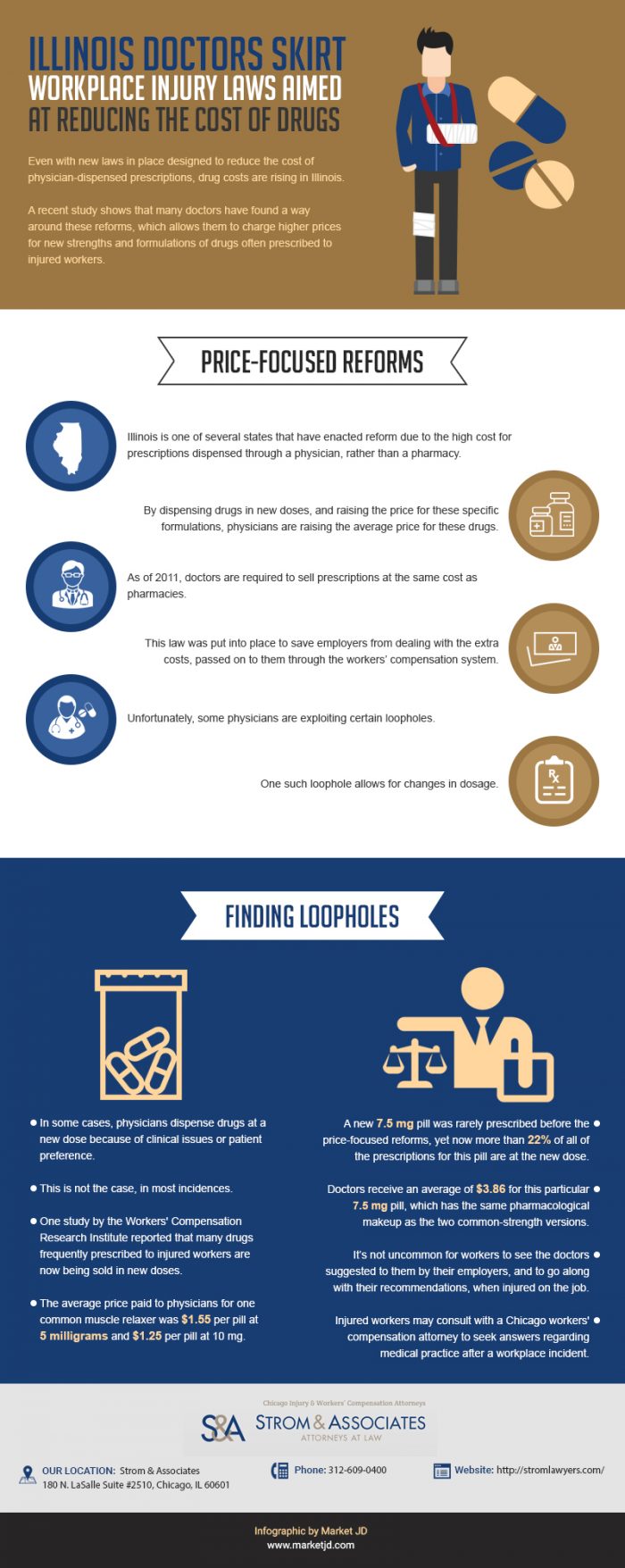Even with new laws in place designed to reduce the cost of physician-dispensed prescriptions, drug costs are rising in Illinois. A recent study shows that many doctors have found a way around these reforms, which allows them to charge higher prices for new strengths and formulations of drugs often prescribed to injured workers.

Price-Focused Reforms
Illinois is one of several states that have enacted reform due to the high cost of prescriptions dispensed through a physician, rather than a pharmacy. By dispensing drugs in new doses, and raising the price for these specific formulations, physicians are raising the average price for these drugs.
As of 2011, doctors are required to sell prescriptions at the same cost as pharmacies. This law was put into place to save employers from dealing with the extra costs, passed on to them through the workers’ compensation system. Unfortunately, some physicians are exploiting certain loopholes.
One such loophole allows for changes in dosage. For example, a frequently prescribed muscle relaxant offered in 5-milligram or 10-milligram form is now being prescribed by doctors as a 7.5-milligram tablet. Since the drug is not sold by pharmacists at this dose, its price is not regulated. Many of these drugs are made by generic manufacturers, which exempts them from this particular set of state regulations.
Finding Loopholes
In some cases, physicians dispense drugs at a new dose because of clinical issues or patient preference. This is not the case, in most incidences. One study by the Workers’ Compensation Research Institute reported that many drugs frequently prescribed to injured workers are now being sold in new doses.
(Article continues below infographic)

The average price paid to physicians for one common muscle relaxer was $1.55 per pill at 5 milligrams and $1.25 per pill at 10 milligrams. A new 7.5-milligram pill was rarely prescribed before the price-focused reforms, yet now more than 22% of all of the prescriptions for this pill are at the new dose. Doctors receive an average of $3.86 for this particular 7.5-milligram pill, which has the same pharmacological makeup as the two common-strength versions.
It’s not uncommon for workers to see the doctors suggested to them by their employers, and to go along with their recommendations when injured on the job. Injured workers may consult with a Chicago workers’ compensation attorney to seek answers regarding medical practice after a workplace incident.







